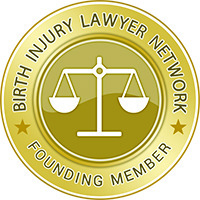Fetal heart monitoring has significantly reduced perinatal mortality and morbidity. However, improper monitoring can lead to serious, lifelong medical complications for your baby.
Improper Fetal Heart Monitoring & Medical Negligence
Hospital staff (nurses and doctors) must pay close attention to the fetal heart strip. Any non-reassuring heartrate patterns could mean a serious birth injury. Negligent fetal heart monitoring can take many forms; some examples include:
- The doctor sees a non-reassuring pattern on the strip and doesn’t diagnose fetal distress
- Underqualified hospital staff is put in charge of the fetal heart rate monitor
- Nurses or other staff members notice non-reassuring patterns on the strip but do not relay this information to the doctor
Obstetrical nurses are expected to be trained in the interpretation of fetal heart monitor strips and be able to differentiate a reassuring strip from one that is worrisome. During labor, they are responsible for monitoring the fetal heart tones, and they are responsible for keeping the obstetrician advised about the patterns on the strip. The nurses are the obstetrician’s “eyes and ears” until the obstetrician is called to come to bedside.
Sometimes, though, a nurse may fail to notice a dangerous pattern on the monitor strip. They may not recognize a decrease in “variability,” the normal changes in the beat-to-beat heart rate, or, may not see “late decelerations,” which are never normal and, if persistent, can signal fetal distress. When nurses fail to respond appropriately, the results can be disastrous. When a baby suffers brain damage because of something such as the umbilical cord being wrapped around his neck, the injury is called hypoxic ischemic encephalopathy (HIE).
Contact Houston Birth Injury Lawyers Today
We understand the issues involved in fetal heart monitoring cases, including:
- What records to review
- How to isolate and identify lapses in communication
- What standard treatment protocols require
When you entrust your case to the Houston medical malpractice attorneys from Hampton & King, you can be confident that we have the skill and experience needed to fight for maximum compensation. With 60+ years of insight, we understand that experience is just one part of the equation. We also bring a proven record of success, a thorough understanding of the laws, the resources necessary to win, and a commitment to state-of-the-art service.
To schedule a free consultation and discuss your case, contact our birth injury attorneys.












